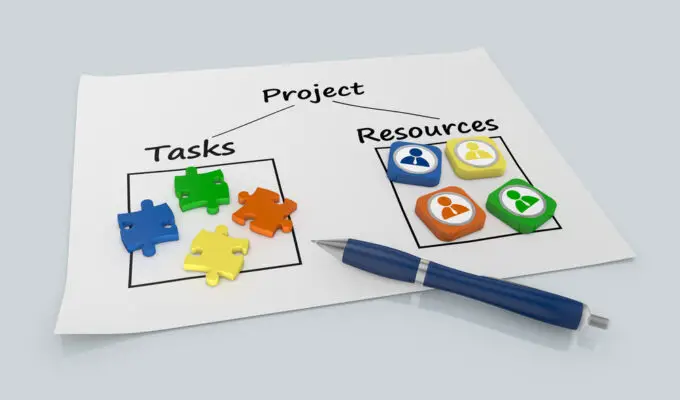Non-profit project management jobs offer a unique opportunity to impact society while utilizing project management skills positively. These roles require individuals who are passionate about a particular cause and are dedicated to achieving the organization’s mission.
Non-profit project managers are responsible for planning, organizing, and executing projects, ensuring they are completed on time and within budget. They collaborate with various stakeholders, such as donors, volunteers, and community members, to ensure the project’s success.
Additionally, non-profit project managers may also be involved in fundraising efforts, grant writing, and reporting to ensure the sustainability and growth of the organization. Working in non-profit project management allows professionals to combine their passion for social change with their project management expertise, creating a meaningful and fulfilling career.
Looking for a rewarding career in non-profit project management? You’ve come to the right place!
This article will explore the ins and outs of non-profit project management jobs, from the necessary qualifications and skills to your responsibilities and challenges.
So, if you’re ready to make a difference and contribute to meaningful projects, keep reading!
What is Non-Profit Project Management?
Non-Profit Project Management is overseeing and coordinating projects within non-profit organizations.
As a non-profit project manager, you’ll be responsible for planning, executing, and monitoring projects that align with the organization’s goals and mission.
Your role will involve working closely with stakeholders, managing resources, and ensuring the successful completion of projects to make a positive impact in the community.

Types of Non-Profit Organizations
You’ll find a variety of types of organizations in the non-profit sector. These organizations are crucial in addressing various social issues and positively impacting communities.
Here are some types of non-profit organizations you might encounter:
- Charitable organizations: These organizations provide assistance and support to those in need, such as food banks, homeless shelters, and disaster relief organizations.
- Advocacy groups: These organizations aim to bring attention to specific causes or issues and work towards creating change through lobbying, awareness campaigns, and policy advocacy.
- Educational institutions: Non-profit universities and colleges are dedicated to providing quality education and fostering the development of students’ skills and knowledge.
- Community-based organizations: These organizations work directly with community members and leaders to address local needs, promote community engagement, and support community development.
Working in non-profit project management within these organizations provides an opportunity to contribute to meaningful projects and make a difference in the lives of others.
Qualifications and Skills
You must have the necessary education, certifications, and licenses regarding qualifications and skills.
Additionally, having knowledge and experience in the field is crucial.
Strong interpersonal and organizational skills will also be essential to thrive in non-profit project management.
Education Requirements
You’ll need a bachelor’s degree or higher in a related field to be eligible for nonprofit project management jobs. Here are some key points to consider:
- Education: A bachelor’s degree in business administration, project management, or a related field is typically required.
- Experience: Previous experience in project management is highly valued, especially in nonprofit organizations or community-based projects.
- Projects: Non-profit project managers oversee projects benefiting the community or a specific cause.
- Team and Organization: As a project manager, you’ll work closely with a team and collaborate with different departments.
Nonprofit project management positions offer competitive salaries, although they may vary depending on the organization’s size and funding.
Additionally, many nonprofit organizations provide benefits such as health insurance and flexible working hours, allowing you to make a positive impact while enjoying a fulfilling career.
Certifications and Licenses
Certifications and licenses can enhance your qualifications and make you a more competitive candidate in non-profit project management.
Obtaining relevant certifications and licenses, such as project implementation, resource development, or program project management, demonstrates expertise and commitment to the job.
These certifications validate your skills and show your dedication to developing businesses and organizations in the nonprofit sector.
Additionally, having the right certifications and licenses can open up more opportunities for you and increase your chances of landing a job in non-profit project management.
Stay updated with job alerts to find out about the latest opportunities that require specific certifications or licenses, and continue to invest in your professional growth to stand out among other candidates.
Knowledge and Experience
When working in a non-profit organization, your knowledge and experience in project implementation are fundamental.
Your ability to manage the implementation of a non-profit project, from planning to execution, is crucial in ensuring its success. With your expertise, you can allocate resources and create a budget maximizing the project’s impact.
Your interpersonal skills will also come into play as you collaborate with various stakeholders to achieve the project’s goals. Your organizational skills will also help you streamline processes and ensure everything runs smoothly.
Interpersonal Skills
Your ability to effectively communicate and connect with others is essential in building strong relationships and fostering collaboration within the organization.
In nonprofit project management jobs, strong interpersonal skills are crucial for success. These skills allow you to connect with partners and stakeholders, creating an environment of trust and cooperation.
Demonstrating care and empathy, you can build meaningful relationships with employees and community members, enhancing the positive impact of your work. This opens up opportunities for collaboration and shared learning.
Your interpersonal skills also enable you to communicate the organization’s mission and goals effectively, rallying support and inspiring others to join the service.
Organizational Skills
Strong organizational skills are crucial for effectively managing multiple organizational tasks and responsibilities. In non-profit project management jobs, these skills are even more important as you must ensure that resources are utilized efficiently and projects are completed on time.
Here are some key organizational skills that can help you excel in this field:
- Time management: Being able to prioritize tasks and meet deadlines is essential in project management.
- Planning and coordination: Creating detailed project plans and coordinating with team members and stakeholders is crucial for successful implementation.
- Attention to detail: Paying attention to small details can prevent errors and ensure the quality of project deliverables.
- Problem-solving: Being able to identify and address issues that arise during project execution is vital for successful project completion.
Technical Skills
To excel in non-profit project management, having strong technical skills to utilize various software and tools effectively is important.
In nonprofit project management jobs, technical skills are crucial to ensure the smooth running of projects within an exempt organization, such as a nonprofit child bereavement center.
As part of the executive leadership team, you’ll manage projects and ensure they’re completed within the annual budget.
This requires technical skills and the ability to adhere to budget constraints and make decisions that align with the organization’s key skills and market knowledge.
Responsibilities of the Job
As the project manager, your job responsibilities will include:
- Overseeing the implementation of various programs.
- Managing projects from start to finish.
- Developing models of care.
- Engaging with the community.
You’ll be responsible for:
- Ensuring that programs are executed effectively.
- Ensuring that projects meet their objectives.
- Developing care models in line with best practices.
- Actively involving the community in the organization’s mission.
Your role will be crucial in driving the success and impact of the non-profit organization.
Program Implementation Responsibilities
You will oversee the implementation of programs and ensure their successful execution in the non-profit sector. As a program manager, you are crucial in delivering community services and making a positive impact.
Here are some of your key responsibilities:
- Collaborating with partner organizations to develop program goals and objectives.
- Creating and managing project timelines, budgets, and resources.
- Monitoring program progress and evaluating its effectiveness.
- Building relationships with corporate partners to secure funding and support.
In addition to these program implementation duties, you may also have the opportunity to contribute to the non-profit sector in other ways. You could explore educational opportunities to enhance your project management skills and even share your expertise on a job board to help others in the field.
Your role as a program manager is essential in driving positive change and making a difference in the lives of those your organization serves.
Project Management Responsibilities
Your expertise in overseeing project implementation is crucial for ensuring the successful execution of programs in the non-profit sector. As a project manager in a non-profit organization, your responsibilities extend beyond simply managing tasks.
You’re responsible for fostering team cohesion and creating a dynamic team that works together towards a common goal. Your role is instrumental in driving market transformation and creating positive change in the lives of disabled persons and the community.
Your ability to coordinate and manage resources efficiently ensures the delivery of high-quality community services through initiatives such as neighborhood centers.
Addressing issues and promoting team cohesion ensures smooth project implementation and a lasting impact on those served.
Model of Care Development
To ensure the successful delivery of high-quality community services, it’s crucial for you to develop a model of care that effectively meets the needs of disabled persons and the community at large.
Here are some important steps you can take to develop a strong model of care:
- Collaborate with organizations like Catholic Charities of LA and the Community Health Ministry of Ascension Health to gather insights and best practices.
- Engage the expertise of the Board of Directors and the University of Minnesota Extension to ensure comprehensive planning and implementation.
- Conduct community needs assessments in places like Wyandotte County and Montgomery County to identify specific care requirements.
- Incorporate diversity and inclusivity considerations, such as addressing national origin and cultural sensitivities, in your model of care development.
Community Engagement Responsibilities
As a community service provider, it’s important to actively engage with the local residents and stakeholders to ensure their needs are met. Community engagement responsibilities are crucial in creating a meaningful impact in non-profit project management jobs.
Whether you’re working for Village Community Services, a religious organization, or a university in nursing, connecting with people is vital. By collaborating with broader community stakeholders, you can develop a model of care that addresses the unique challenges faced by individuals in the human service field.
For example, at Children’s Hospital Medical Center, community engagement is a cornerstone of quality healthcare. By actively involving the community, they can tailor their services to meet better the needs of the people they serve.

Challenges of the Job
You’ll face numerous challenges in non-profit project management jobs. The nature of the work requires you to overcome obstacles and find innovative solutions to achieve your goals. Here are some of the challenges you may encounter:
- Balancing multiple projects and deadlines while managing limited resources.
- Building and maintaining strong relationships with partner organizations and stakeholders.
- Navigating complex regulations and requirements from county offices and funding agencies.
- Staying up-to-date with the latest technologies and trends, such as assistive technology, to enhance the impact of your projects.
To succeed in this field, consider pursuing an advanced business degree or certification to enhance your project management skills.
Additionally, seek support from employee assistance programs offered by organizations like Community Services League and Catholic Charities of Northeast Kansas.
Frequently Asked Questions
What Are Some Common Funding Sources for Non-Profit Project Management Positions?
Common funding sources for non-profit project management positions include government grants, private foundations, corporate sponsorships, individual donations, and fundraising events.
These sources provide financial support for the organization to hire and pay project managers.
Are Any Specific Software or Tools Commonly Used in Non-Profit Project Management?
There are several software and tools commonly used in non-profit project management. These include project management software like Asana or Trello, communication tools like Slack or Microsoft Teams, and fundraising software like DonorPerfect or Salesforce.
How Do Non-Profit Project Managers Typically Collaborate With Other Departments or Teams Within an Organization?
Typically, non-profit project managers collaborate with other departments or teams by holding regular meetings, sharing progress updates, and coordinating tasks. They ensure effective communication and alignment to achieve project goals.
What Are Some Strategies for Successfully Managing Volunteers in Non-Profit Project Management?
To successfully manage volunteers in non-profit project management, establish clear expectations, provide training and support, communicate regularly, recognize their contributions, and create a positive and inclusive environment.
Can You Provide Examples of Successful Non-Profit Projects That Have Been Managed Effectively?
You can find successful examples of non-profit projects managed effectively through research and networking. Look for projects that achieved their goals, positively impacted, and received recognition in the community.

Conclusion
Non-profit project management jobs require unique skills and qualifications.
The job involves overseeing and coordinating various projects to achieve the organization’s goals.
However, it’s important to acknowledge the challenges that come with this role, such as limited resources and tight budgets.
Despite these challenges, working in non-profit project management can be incredibly rewarding, allowing individuals to impact society through their work positively.

Chris Ekai is a Risk Management expert with over 10 years of experience in the field. He has a Master’s(MSc) degree in Risk Management from University of Portsmouth and is a CPA and Finance professional. He currently works as a Content Manager at Risk Publishing, writing about Enterprise Risk Management, Business Continuity Management and Project Management.

